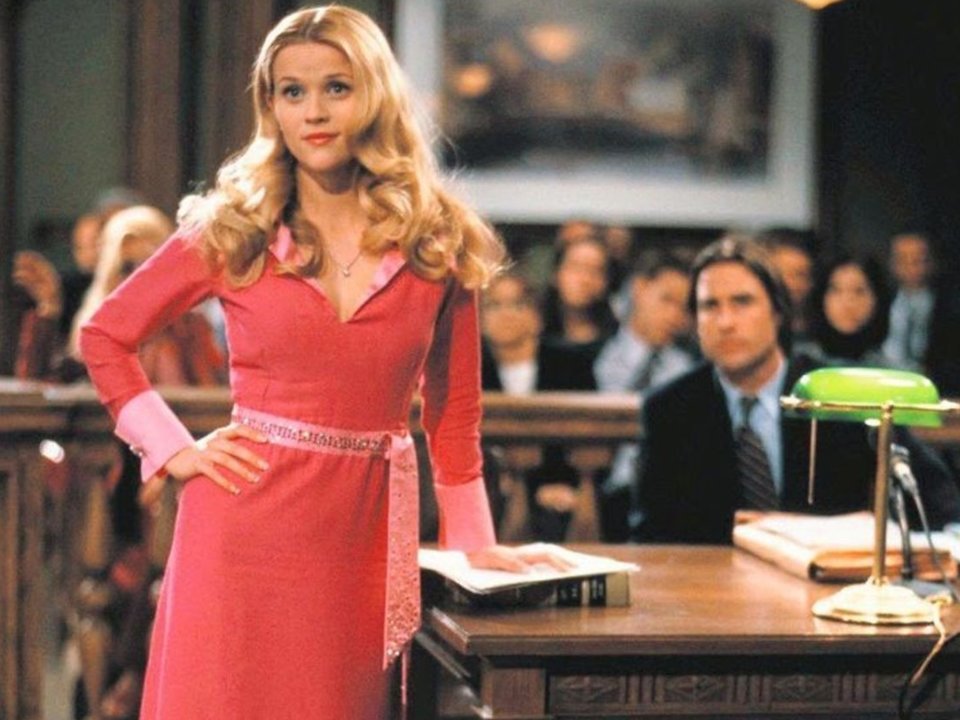
Many films, especially romantic comedies of the early 2000s, have not stood the test of time. Re-watching these films 15 years after they were initially released can be a painful reminder of how intolerant and sexist mainstream cinema can be. There are racist, homophobic, ableist, and sexist slurs that are littered throughout these type of films as passing remarks, and even used for humour. In a time when reboots are becoming the norm it would be unsurprising if these films were made again with more sensitivity to their audiences. However, some films may need revisiting before the trend of rebooting threatens to take away the merit they originally had.
Watching Legally Blonde in 2019 suggests that perhaps, as opposed to rebooting the entire film, it might be better to revisit it. The film tackles subjects that are at the forefront of many contemporary films today, such as the #MeToo movement, gender discrimination in the workplace and – most importantly – the lesson that we should not judge a book by its cover. This old adage has been used in rom-coms forever: the jock has the highest GPA in his class, the bad boy is actually the most sensitive.
However, with Legally Blonde there is not a drastic change between the Elle (Reese Witherspoon) who we meet at the beginning of the movie and the Elle who we see at the end. She is still ambitious, hard-working, surrounded by a supportive group of friends, fiercely independent and honest to herself. The most inspiring part of the film is that, yes, the sorority girl is smart, but she has always been smart and was never hiding that part of herself.

Legally Blonde is, and has always been, wonderful in its depiction of female relationships. Whether it between Elle and her nail technician Paulette (Jennifer Coolidge), Elle and her sorority sisters, Elle and her defendant Brooke (Ali Later) or even Elle and her love-rival Vivian (Selma Blair).
Elle’s sorority sisters are not greatly interested in Harvard law school, however they still work hard to help her study to get in. When she does, they continue to support her with phone calls and even by coming into court. It shows that women support each other regardless of their interests; you do not need to like the same thing in order to empower other women to be their best selves. Vivian, on the other hand, is established as the villain early in the film. She is Elle’s competition, both her ex-boyfriend Warner’s (Matthew Davis) new girlfriend and top of Elle’s law class. However, through the shared experience of misogyny and sexual harassment in the workplace, they come to realise that they have more in common than they thought – and forge a beautiful friendship.
Currently, several films are being made about women coming together to make a change a difference. Notably, Legally Blonde does not exclusively focus on female friendships, making all the more interesting to revisit as a film with male characters who support women. Emmett (Luke Wilson) continuously supports and helps Elle – even when no one believes in her -without any expecting anything from her in return. Usually, films can tend to focus on the romantic aspects of these relationships but, in Legally Blonde, we are able to see how Emmett uses his position as a man in power to empower Elle so that she too can be in a position of power.

Having said this, there are still elements of Legally Blonde that would be problematic when the film is being watched through the lens of 2019 society. There are some racist and ableist jokes that are in the film, which would not be suitable for today’s audience. Additionally, the perennially popular ‘bend and snap’ has problematic connotations for how a woman should behave in order to attract male attention. Although, the film redeems itself slightly when Paulette attempts the ‘bend and snap’ and breaks the UPS guy’s nose, they still end up together.
In a time of constant reboots, it might be interesting to revisit films such as Legally Blonde and wonder where their place is in film canon. Why has a film that was revolutionary in its time for its depiction of women, female friendships and sexual harassment in the workplace become known just as an early 2000s rom-com? Perhaps it is not the film itself but our categorisation of it that needs a reboot. In the same way that Elle Woods did not just fit into one box, it is important to consider that Legally Blonde does not just fit into one box either.
by Aleena Augustine
 Aleena is a Classics graduate who splits her time between High Wycombe and wherever the latest film or TV show she is bingeing is set. She enjoys watching rom-coms, coming of age films, animations and comedies featuring a strong female ensemble (thank you, Bridesmaids). Her favourite films are Before Sunrise, Inside Out, Zodiac and When Harry Met Sally. You can read her blog, That’s What She Said and more of her writing at Music Bloggery.
Aleena is a Classics graduate who splits her time between High Wycombe and wherever the latest film or TV show she is bingeing is set. She enjoys watching rom-coms, coming of age films, animations and comedies featuring a strong female ensemble (thank you, Bridesmaids). Her favourite films are Before Sunrise, Inside Out, Zodiac and When Harry Met Sally. You can read her blog, That’s What She Said and more of her writing at Music Bloggery.
Leave a comment